Addis Ababa
We are in Addis Ababa, after a ride through the ever-changing scenery from Bahir Dar, and an overnight stop at a pretty smart hotel in Debre Markos.
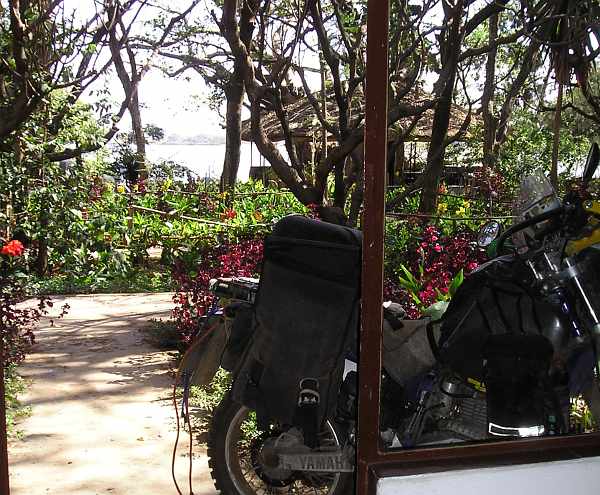
View of Lake Tana from hotel room in Bahir Dar.
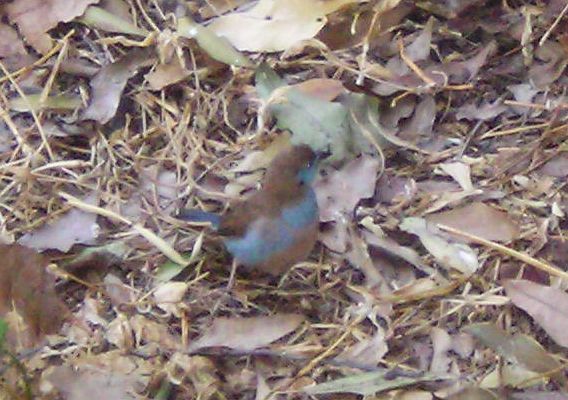
Many birds of a colour were pecking around in the hotel gardens. And fairly tame at that.
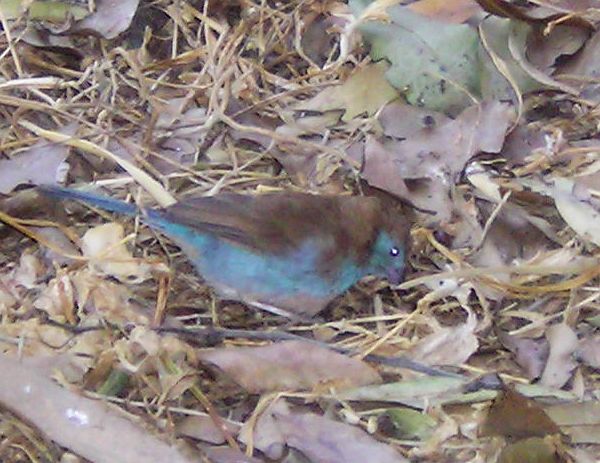
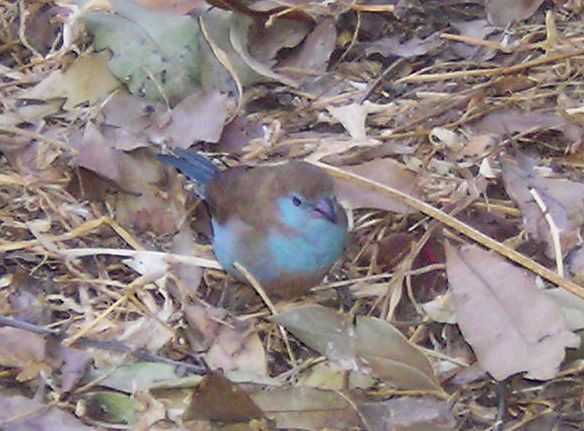
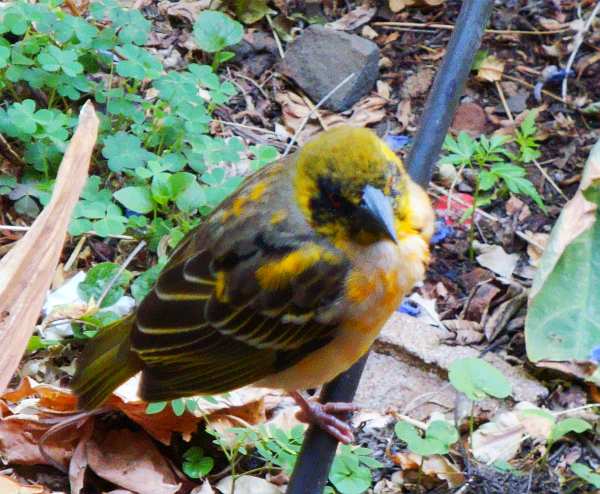
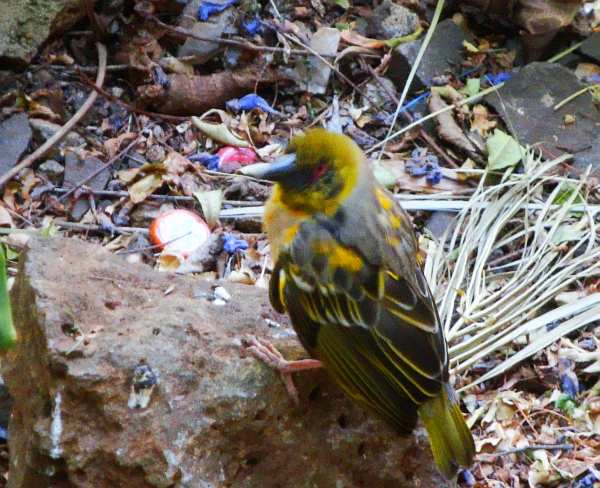
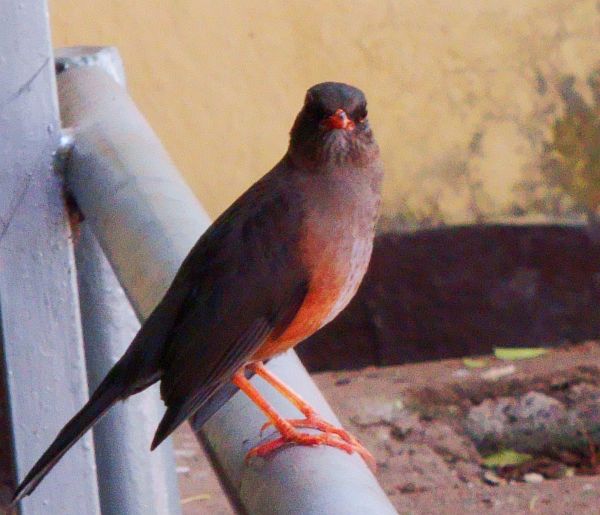
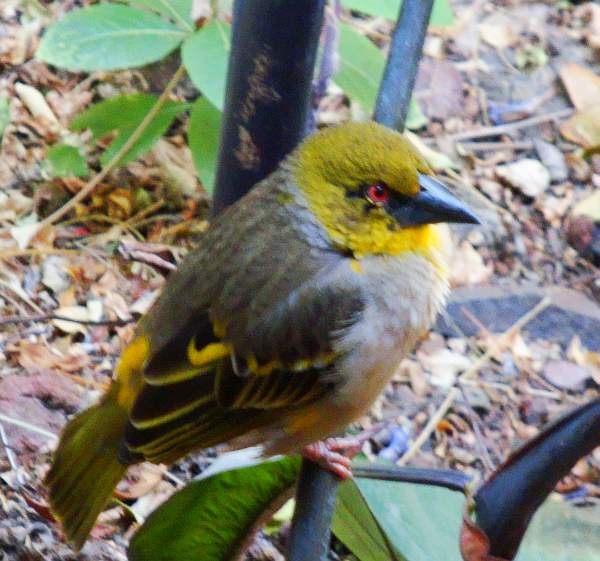
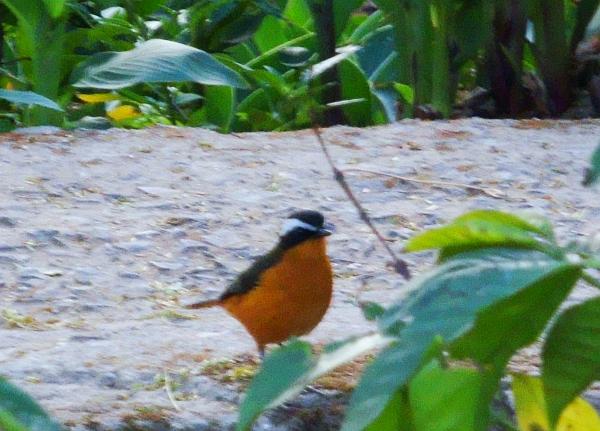
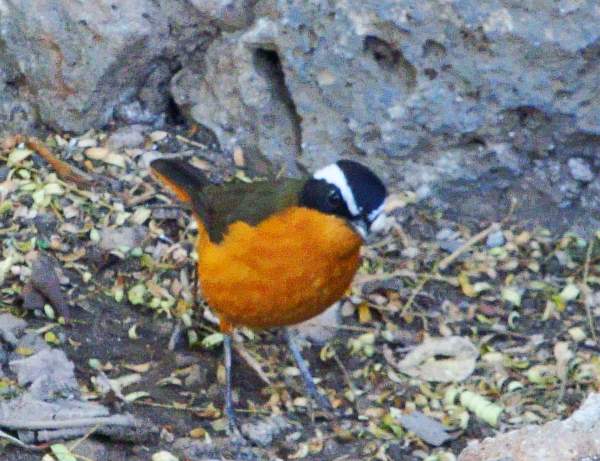
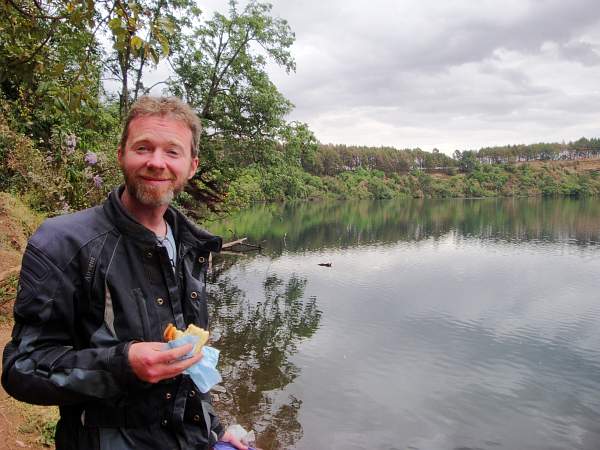
On the way to Debre Markos we stopped briefly at Zengena Crater Lake, a picnic spot just a little way off the road.
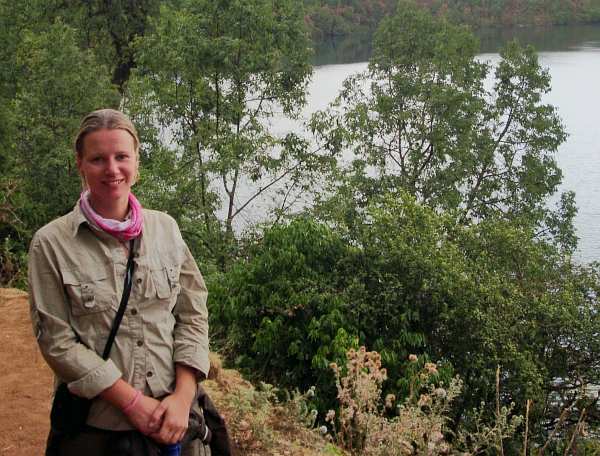
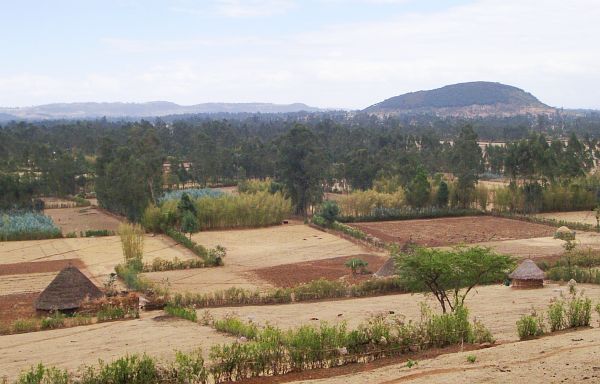
Village just below the lake.
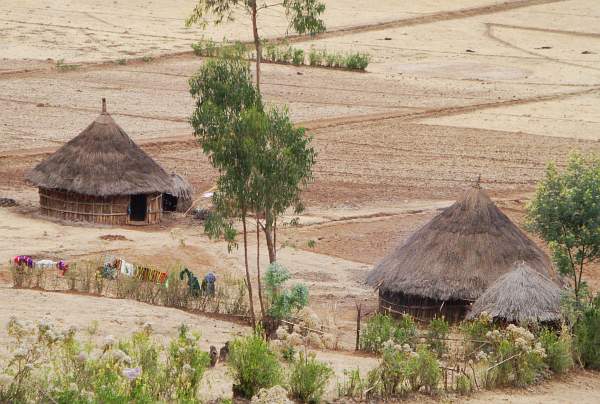
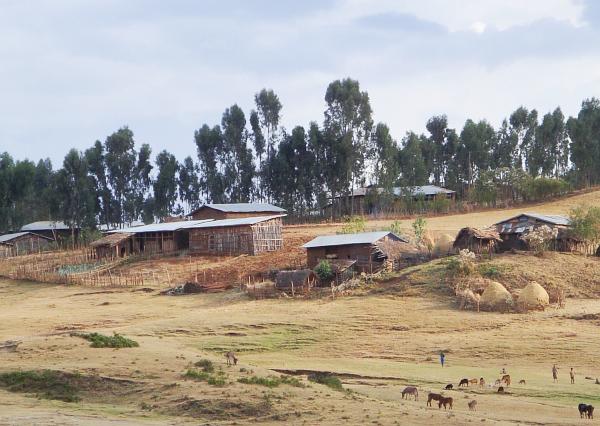
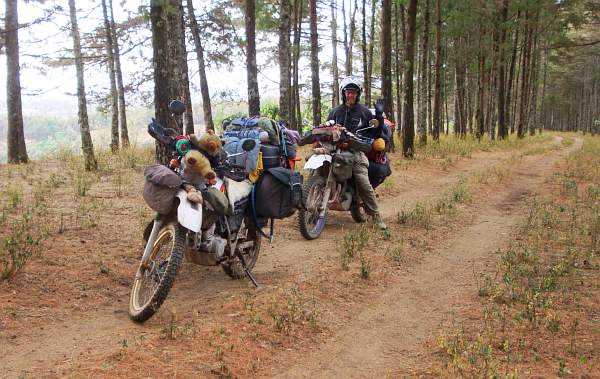
At the invitation of the local warden we took a ride round the two-mile track that encircles the lake.
There were quite a few sections of loose gravel road in the mountains where the steep twisty sections were being repaired. Not the least, a tricky part where the steep tarmac road had fallen away into the Blue Nile Gorge far below, (south of Debre Markos) with a temporary gravel-and-stone road cut into the cliff side around the missing piece. And to complete the obstacle, a double-trailer fuel tanker had toppled over onto its side on a sharp bend on the temporary section, with just enough room between tanker and cliff face for a single line of traffic to pass amongst the rocks and boulders.
Further on, another double-tanker had recently fallen into a drainage ditch on the outside of a bend and caught fire. Diesel, petrol, oil or molten tar, or all four, had run all over the tarmac making for a sudden increase in concentration. If such a thing were possible.
For concentration is the most consumed item on these roads.
There is not a single kilometre where the road is clear of pedestrians, donkeys, cattle, sheep and goats, and herdsmen rounding up the wandering livestock in their care.
The density of foot and animal traffic increases sharply through the many towns and villages, with the addition of huge groups of schoolchildren, taking up half the road's width, on their way to or from classes. Around them weave dozens of buzzing tuk-tuks, working like swarming bees.
For this is the most populated region of Ethiopia, the fertile northern highlands.
And wherever there are children, which is everywhere, there is waving to be done as we ride along. Which leads to an interesting, for us, observation. I generally ride at the rear and can see fairly clearly the actions and reactions of the children and adults ahead as Caroline and Beau ride past. Particularly when sometimes it's just not possible through safety considerations for them to wave to the bystanders. Too much going on ahead; goats about to cross the road, a minibus about to pull away from the kerb, farmers shouldering their long wooden ploughs which extend a good way across the road into our path. So when a toddler or very young child waves at the first of us to pass, and there's no reciprocation, the waver just turns to the next of us and waves more enthusiastically. If Beau's attention is also focussed on something else the child just turns to me bringing up the rear and with even more enthusiasm waves again. I reply if I can, but any lack of response seems no big issue to the child.
With older children a lack of response brings a concerned and disappointed look to their face. Even more so with older teenagers.
With adults, only a few of whom will wave, a lack of response often brings a distinct look of concern or anger to the face. In Africa we have learnt that between adults it's the required and expected thing that every greeting is responded to properly. Including when adults wave to us from the roadside. So waving while riding between donkey carts, hurrying buses, and sheep or oxen clearly contemplating a sudden move to the opposite side of the road, is a serious and continuous business.
Thus, despite it not being a great distance from Bahir Dar to Debre Markos, we were shattered by the time we found a hotel there and could do no more than eat in the hotel's restaurant and retire.
In contrast to the level of population in these highlands, it's noticeable that there are no fences to be seen, in town, village or countryside between. People and animals walk and wander everywhere. I don't know what the culture of land ownership is here but it looks very different to the West.
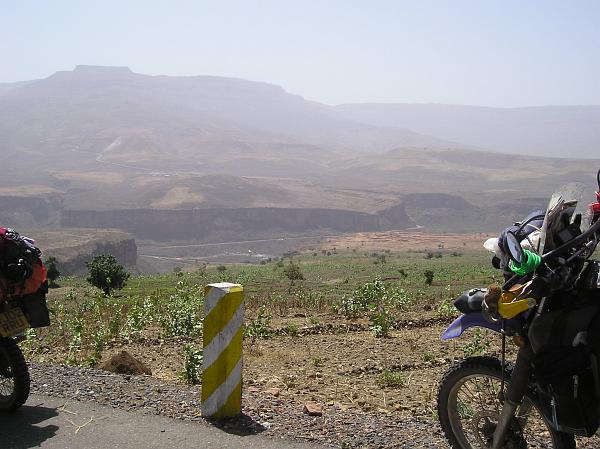
After Debre Markos: the Blue Nile Gorge where the south-flowing river performs a U-turn on falling into the African Rift Valley and heads north for the Mediterranean.
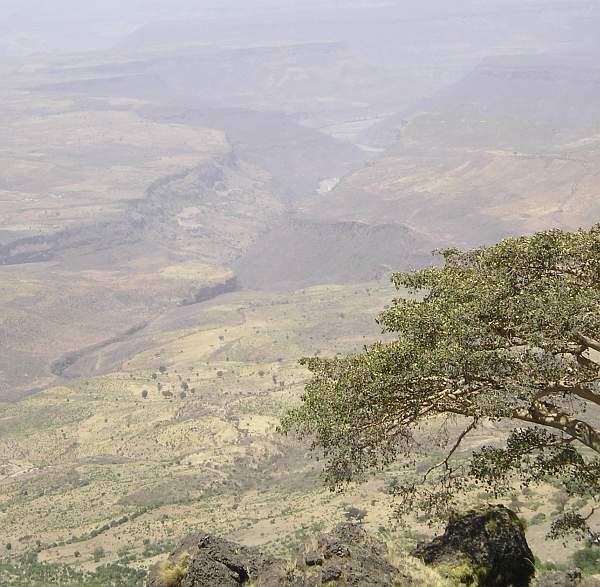
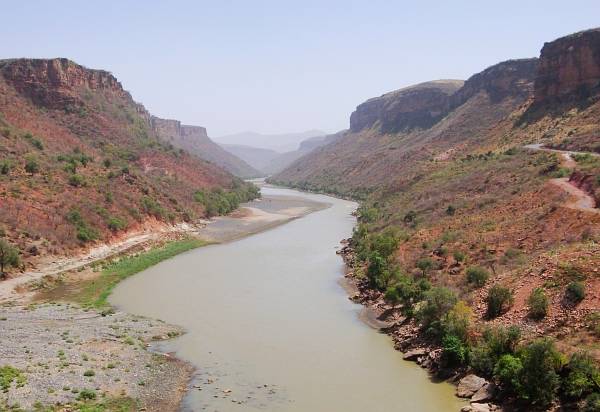
Crossing the Nile at the bottom of the Blue Nile Gorge.
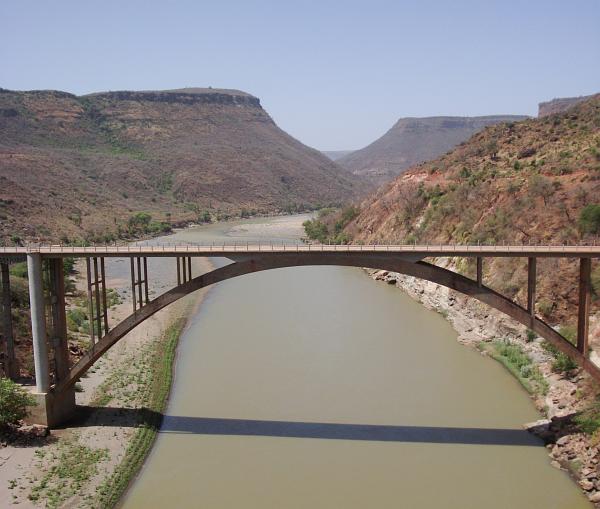
The old bridge from the new bridge.
Halfway between Debre Markos and Addis Ababa the hilly highlands flatten out into a high plateau, almost alpine-like, but not quite so green.
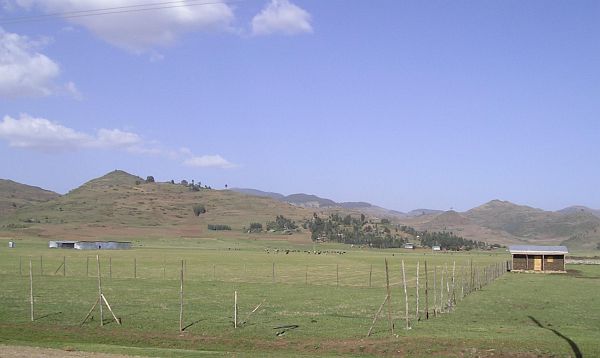
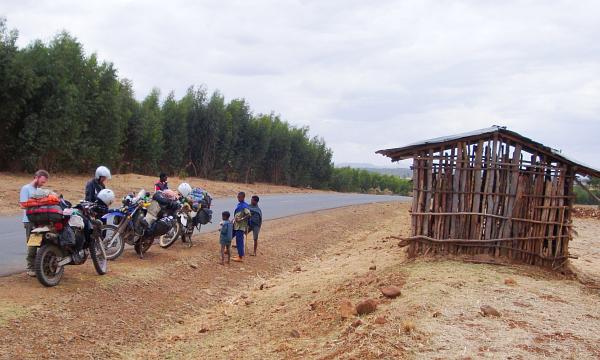
Whenever we stop for a much-needed break, away from herding animals and people if possible, children always gather.
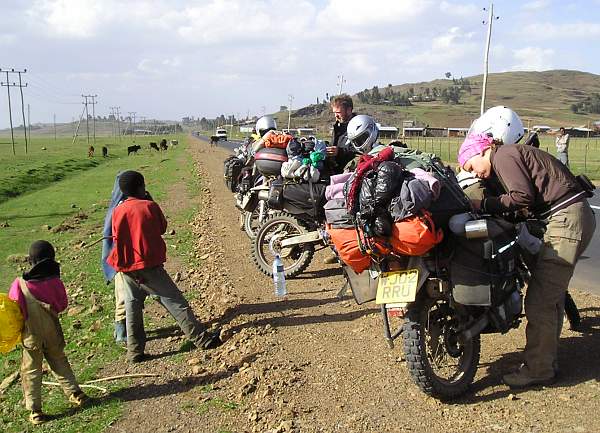
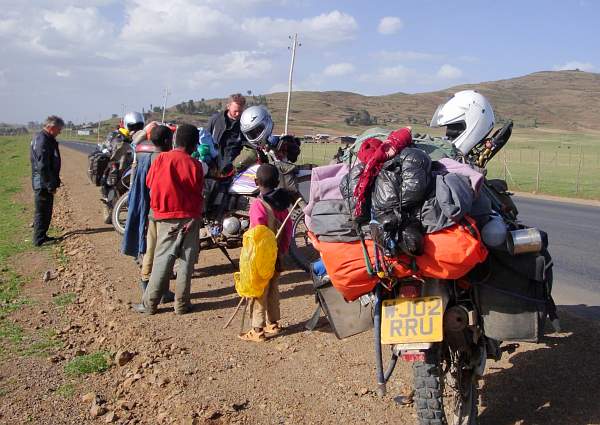
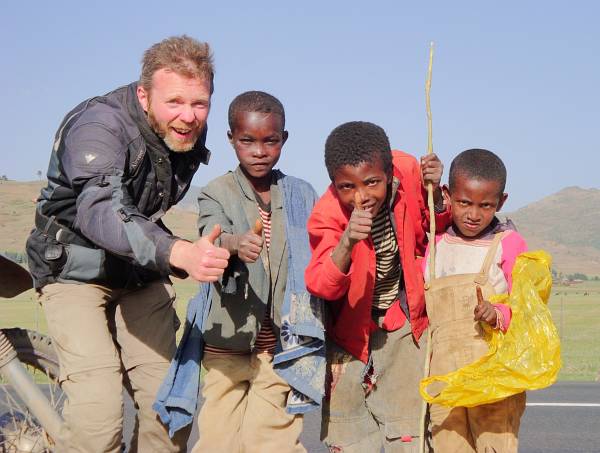
These highlands reached over 10,000ft, at which height all three of our bikes were suffering from altitude-sickness to a greater or lesser extent.
Caroline's bike had just a small misfiring problem, the smaller jet seeming to be about right, or maybe the next size down would have been better.
Beau's bike ditto, on completely unknown carburettor jetting, maybe standard, we don't know.
Mine was a problem. As standard, this model of TTR is known to run lean because of the modern emissions-control arrangements. Everyone fits a larger main jet, I went one size up on mine.
But at over 10,000ft it was a bit tricky. The engine would only pull at one or two hard-to-find throttle positions. And the road was steep in many places. So on a few occasions I was down to first gear and getting slower before finding the elusive spot where the engine would pull once again. The tricky bit being that, with an accelerator pump in the carburettor, and throttle slide controlled directly by twistgrip (unlike the Serow), closing or opening the throttle the smallest amount enriches the mixture even further for a couple of seconds, making it pretty impossible at times to find that 'lean spot' where the engine would pull once more.
Just to add to the interest, every petrol station we stopped at had only diesel, no petrol. Memories of the two crashed fuel tankers back up the road sprung to mind.
But Beau had two extra cans strapped on, so not a big problem. Until Caroline's bike stopped, and we found that her petrol tap had started to leak the reserve into the main supply, and she was right out of fuel.
Luckily we had a couple of litres still in one of Beau's cans, and that just got us OK to the next station with petrol in stock.
So we made it to Addis Ababa, usually called the most African of cities, and now have the impossible task of describing Africa, or just this African capital.
So I won't bother, it's a vain task, other than to say it's exotic and colourful, as you'd expect.
I'll borrow from another book instead, which says that, in terms relevant to our world, Africa is not a continent, but a planet, another cosmos.
And there you find two peoples, Africans, and visiting westerners, and they are not only instantly identifiable by their colour.
Africans live with nature, follow nature, live off of the earth and are of the earth.
Westerners, by even our smallest of actions and body language, try to bend and alter nature, twist it to fit our acquired culture, to achieve our material (and often financial) gratifications.
So to that I'll add my own small observation.
Menus.
Further north, particularly in Egypt, there are no menus in most restaurants. The waiter tells you what there is, and you decide.
But here, restaurant menus seem to have caught on, which doesn't seem very logical.
Because Africa is a place where people live with nature and consequently eat whatever nature provides at the time.
Menus (or even shopping lists) on the other hand are an attempt to force nature into providing what you want, which just doesn't happen here, so menus don't work. They don't fit into the African culture of eating for a meal only what there is. (Big western chain hotels an exception).
And that I think explains why we've found that where there is a menu, you rarely get what you order from it. And that's a very common observation related by most travellers in Africa, and many travel writers.
Order what you like, you'll be served whatever's available at the time.
At some restaurants the waiter's main job, sometimes, seems to be to tell you what isn't available from the printed menu. Usually quite a list!
As they say, that's Africa for you!
Back to practicalities, we've heard that Kenyan visas may be more expensive to buy at the border than here in Addis Ababa. And the three-month version available here may not be on offer at the border. So on Monday we'll go to the Kenyan embassy before continuing south.
We've also heard today from two German riders who are about five days ahead of us. They've been stranded for two days at Yabello, the last town 80 miles before the Kenyan border, waiting for petrol to be delivered to the petrol station there. Their advice is to carry as much as possible so we'll review the balance between carrying petrol and water.
Hope the tanker arrives soon!
Latest Financial Report from Addis.
I erroneously thought I was a bit of an expert on arranging cash for overseas trips to out-of-the-way places with doubtful ATMs. For visits to Russia I had followed good advice to take low-denomination US dollar bills that were brand-new, or as good as. Including plenty of $1s for when something had to be paid for in US dollars and you could be sure that the seller would have no change.
In Central America I once had a brand new $10 bill turned down at a bank simply for having a single dog-eared corner.
I reasoned that Africa would be the same so obtained a large quantity of brand new $1 and $5 dollar bills (as well as a few 10s and 20s), thinking it the smart thing to do. The phrase 'doorstep sandwich' springs to mind - a few of them.
But, as they say, in all things, Africa is different. Very different.
In Cairo we met a Dutch couple travelling in the opposite direction to us who gave us lots of useful info about the route ahead. Including the advice that we should carry new dollar bills, "in large denominations, $100s are good. The further south you go the lower the rate you get for small notes when you change money. Ones are pretty useless!"
The phrase "Oh dear!" springs to mind.
So in Bahir Dar I found out why - why they don't like small notes.
In Khartoum, and other places, I had previously changed money on the streets with no problem, except the money-changers frowned a bit seriously at the twenty $1 bills I included each time. But I always asked the rate before showing my money and the small notes were always accepted. But as I said before, in Sudan the people are very nice.
In Bahir Dar I went to the bank with $60 in tens and $10 in ones.
I'll try to keep it short:
The 'Receiving Teller' didn't even blink when seeing all the ones. Just counted it all about three times, filled in a form and handed it all, including my passport, to an elderly gentleman in the back office.
(Average life expectancy in Ethiopia is 45, so there are very few 'elderly gentlemen' and even fewer of my age. Distinctly different to being in my local Waitrose. It gives you a funny feeling. You get a certain type of wave and tip of the head from Ethiopian elderly gentlemen out in the streets).
The said gent clears a large space on the table next to the photocopier behind the cashiers, looks a bit bewildered at the seventy dollars, spreads it all out on the table and proceeds to photocopy the form. Followed by my passport, and all of my sixteen banknotes. Four per A4 sheet.
"So THAT's why they don't like small notes," I said to myself.
The elderly gent now collects all the photocopies and the form together, staples them up, and hands the lot, cash and all, to the next official along the counter. He fills in another form which requires the name of the hotel where I'm staying, my occupation, my nationality ('United Kingdom of Great Britain and Northern Ireland' being just a source of great confusion to him), and my signature. He then directs me to "Window number two", hands the huge file to the 'Paying Teller' and requests I wait five minutes at the window.
After ten minutes the Paying Teller calls my name, counts out 945 Ethiopian Birr at least four times (100 Birr is the largest note in circulation, about £5), fills out a receipt and hands it, my passport and Ethiopian cash through the window.
Job done! And only about 40 minutes for the whole transaction.
But the best, I found, was yet to come.
We are staying at the only campsite in Addis Ababa, right next to the huge 19th-century defunct French-built railway station, 'Chemin de Fer Djibouto Addis Ababa', but with its hotel, restaurant, platform café, buffet and newspaper stand all still functioning. When we arrived Hiula and Eva were already here ahead of us. They still had trouble with Hiula's bicycle gears and had thumbed a lift all the way with another truck, and found, as planned, that their new parts had arrived for them at the post office. Also, as an example of Ethiopian hospitality, the truck driver who brought them here stopped by the other day just to see how their repairs had gone.
Anyway, Eva had gone to the local bank to change a single $50 bill. They had been smarter than me and carried big bills so I asked what happened at the bank.
"Well, it's a funny thing," said Eva.
"It took four people to change the note. The first counted it a couple of times, filled out a form and handed the note and form to a second cashier. He put the fifty dollar bill all on its own in one of those banknote counting machines. But the machine jammed so he had to extract it, reset the machine and try again. It counted the note correctly the second time and printed out a docket confirming it was one single note, which the official stapled to the form and handed the whole lot on. It took about half an hour to complete the whole thing and get my Ethiopian money."
So there you have it. In all things, Africa is DIFFERENT, in ways you cannot imagine! And having large banknotes and a counting machine saves ten minutes when changing your money.
Now please don't ask what using a counting machine to count a single banknote has to do with living with, and following, nature. Because no, I don't know either.
So now, I'm plucking up the courage to go into the Commercial Bank of Ethiopia with seventy dollars in ones under my arm, just to see what happens.......
